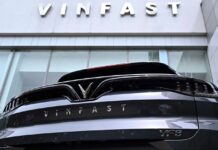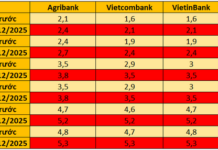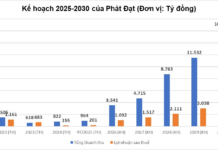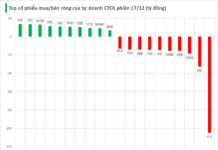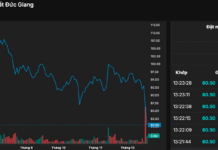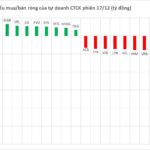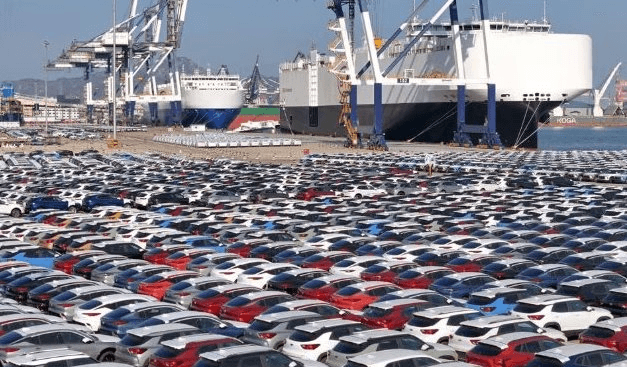
Illustrative image
According to Nikkei Asia, Chinese electric car manufacturer BYD recently announced that it will launch two more electric car models in Japan in 2026. The automaker hopes to shake up the world’s 4th largest automotive market, which has been dominated by domestic car manufacturers until now.
Liu Xueliang, BYD’s Business Director for Asia-Pacific, said, “Japan is a global automotive kingdom and our participation is changing the country’s automotive industry. This is meaningful and welcomed.”
He said that consumers will have more options among electric cars and the rise of new electric cars is bringing about social changes, such as making cities quieter.
The Chinese company entered the Japanese passenger car market in 2023. So far, they have introduced two models, the mid-size multi-purpose sports model Atto 3 and the small hatchback Dolphin. The third model, the Seal sedan, is expected to be launched in June.
Atsuki Tofukuji, Chairman of BYD Auto Japan, told reporters at an event in Tokyo, “We want to accelerate and expand our business operations this year. In addition to the Seal model, we will introduce at least one new model per year,” but no specific details have been revealed.
Tofukuji said that about 1,700 BYD vehicles have been registered in Japan, which is a good number considering they started from 0.
Although the automaker has not disclosed sales targets in the Japanese market, they need to register at least about 3,000 cars to become popular.
BYD is gradually developing its sales channels across Japan. More than 50 BYD showrooms have been established since their establishment. The company hopes to have 100 showrooms in the country by the end of 2025, as they believe physical stores will be crucial in increasing familiarity with the brand and electric cars for Japanese customers.
In Japan, electric cars account for only 2% of total new passenger car sales in 2023, and this market share is expected to gradually increase.
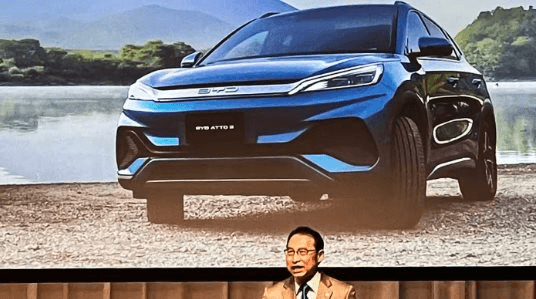
Is the Japanese market promising?
Japanese automakers, who have been leaders in the market, have been slow to introduce electric vehicle products. Competition with hybrid cars and the slow development of charging infrastructure are believed to be obstacles to the development of electric vehicles in this country.
However, Liu noted that the real reason for the low sales of electric vehicles in Japan is not that Japanese consumers are rejecting them. Rather, they don’t have the product lines or designs to choose from.
BYD recently surpassed Tesla of the United States to become the world’s leading electric vehicle manufacturer. The company is vigorously expanding into Southeast Asian countries, where Japanese brands have long dominated car sales. Last month, BYD made its way to Indonesia, the region’s largest economy, and plans to double its sales in Singapore and the Philippines.
Liu said, “Electric vehicle sales and market share in Southeast Asia have increased significantly in the past year. The market that Japanese automakers have established so far is lively thanks to the entry of various brands like BYD, and this has been well received by domestic consumers.”
BYD’s push comes as electric vehicles lose momentum in the strategies and global sales of rival automakers. Electric vehicles have quickly emerged as a significant competitive product in the automotive industry over the past few years, but face an uncertain outlook as sales growth slows and companies struggle to achieve profitability.
German automaker Mercedes-Benz recently withdrew its target to only sell electric vehicles by 2030, while American automaker Ford Motor announced that it will postpone some investments related to electric vehicles. Apple, the company that has been working on developing an electric vehicle for a decade, is said to have canceled the project.
According to Nikkei Asia


